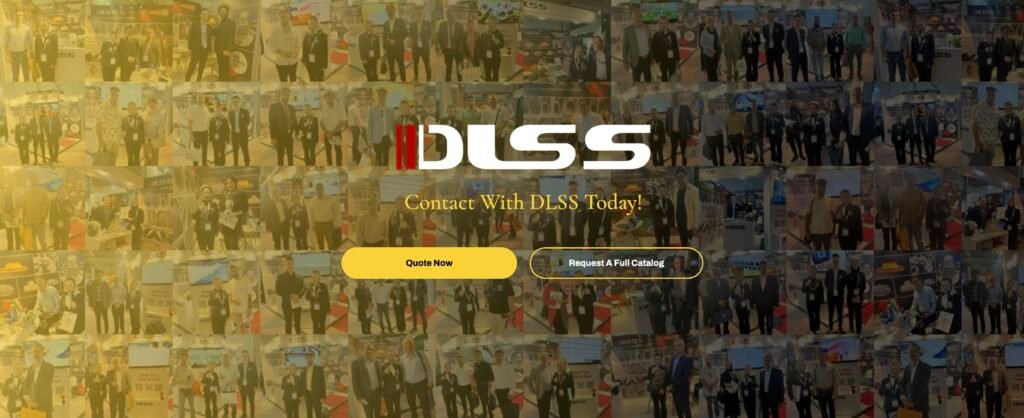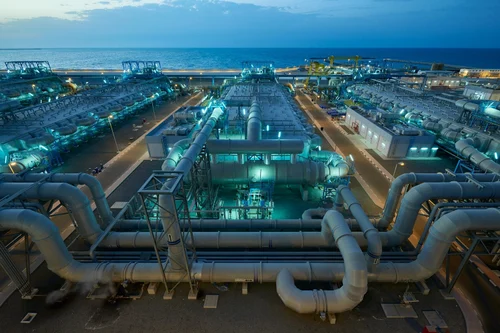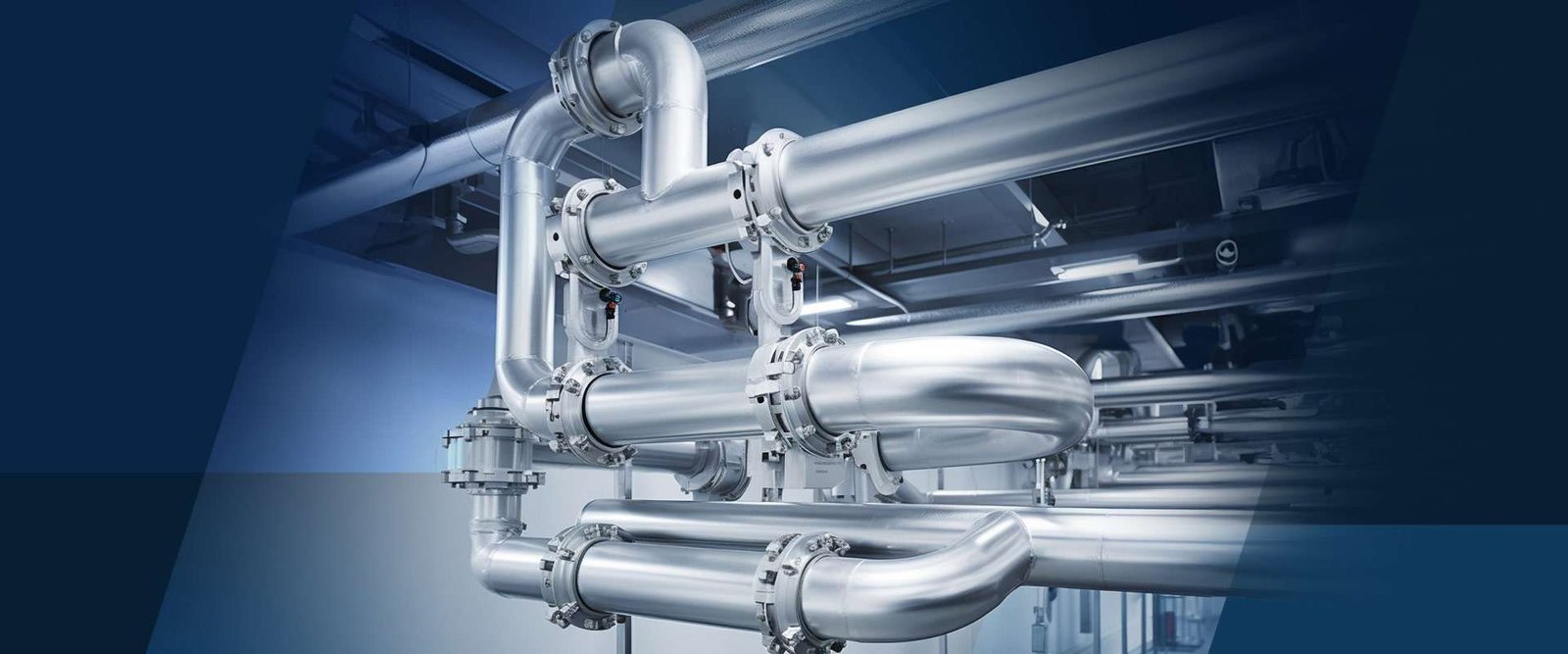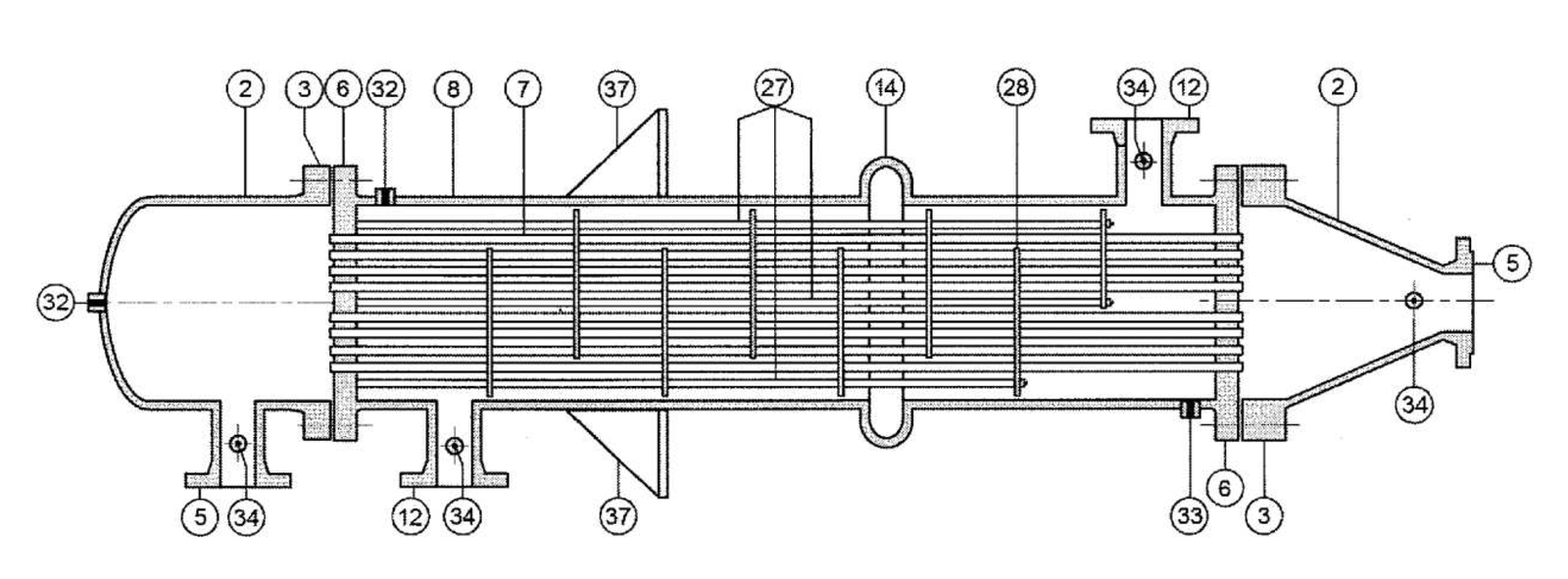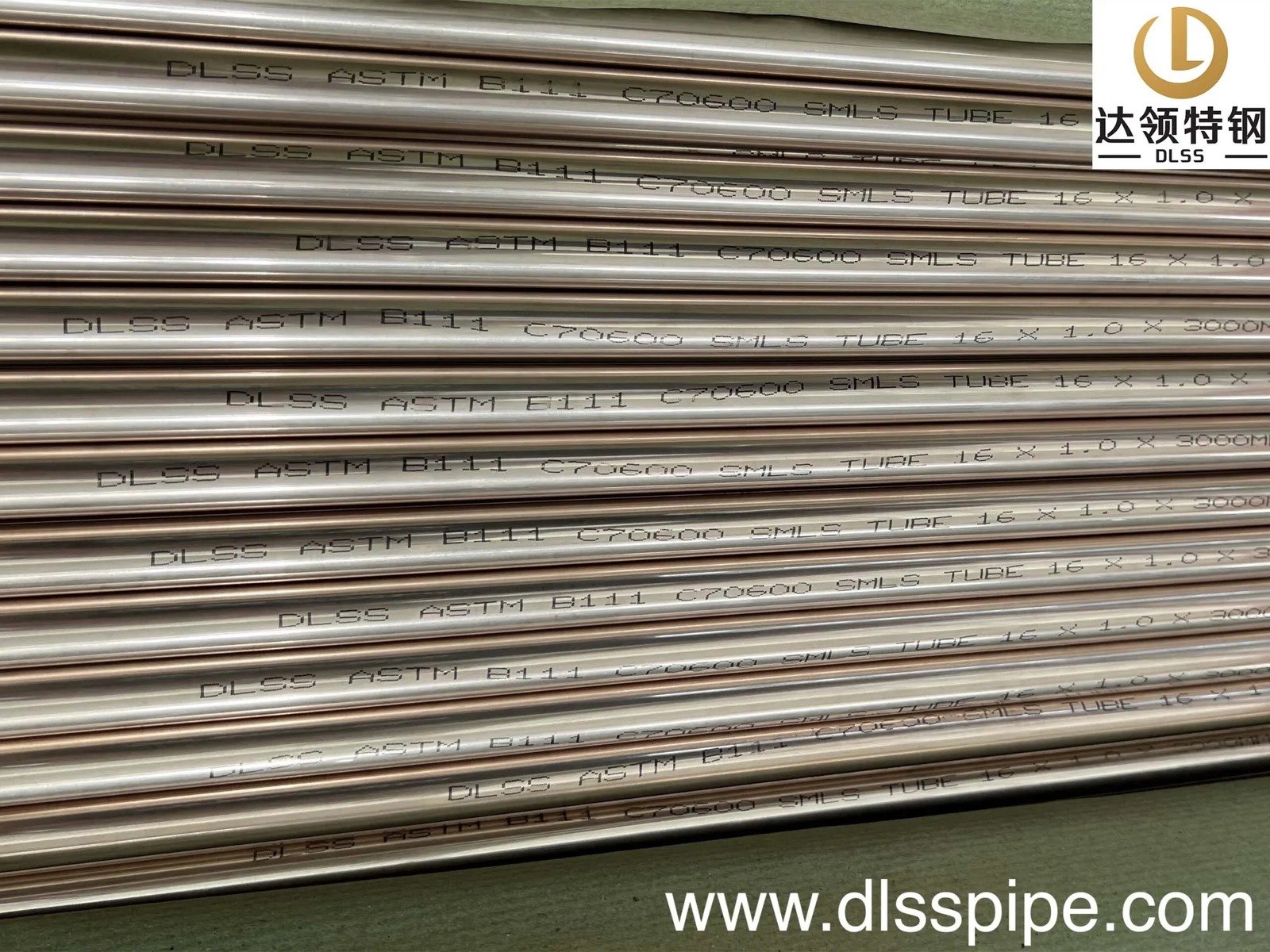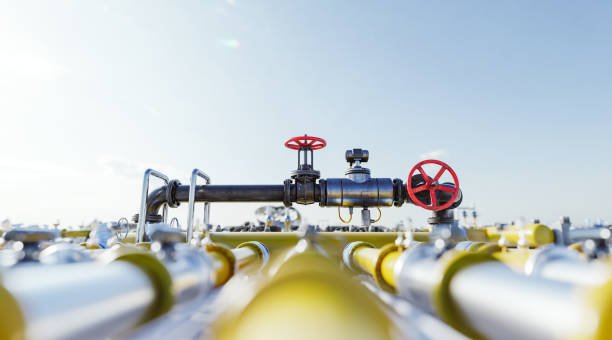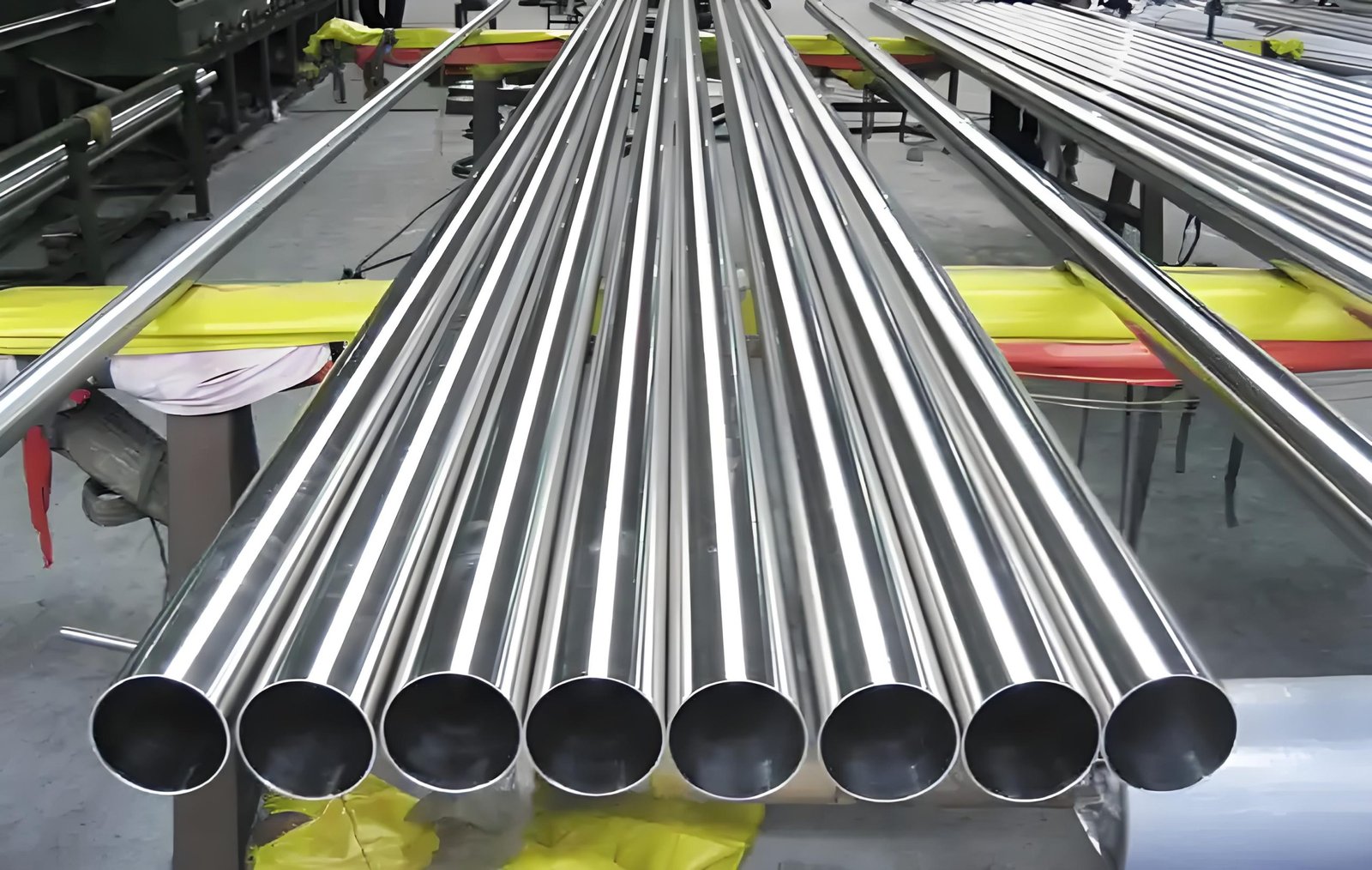Meta Description:
Not all stainless steel pipes are suitable for heat exchangers. Learn how to select the right grade, surface finish, and compliance standard for maximum thermal efficiency and corrosion resistance.
Introduction
Heat exchangers are the heart of many industrial systems—refineries, petrochemicals, power plants, and HVAC units. And at the core of any heat exchanger is a network of tubes or pipes that must perform under thermal, chemical, and mechanical stress.
But not all stainless steel pipes are created equal.
Selecting the wrong grade or finish can lead to corrosion, fouling, or thermal inefficiency. In this article, we guide you through choosing the best stainless steel pipe for your heat exchanger application, based on industry standards, process media, and real-world performance.
Key Factors When Choosing Pipes for Heat Exchangers
1. Operating Temperature and Pressure
Refer to design codes like ASME Section VIII or TEMA guidelines.
Pipes used in condensers or boilers must withstand cyclic loading, temperature swings, and possible overpressure.
2. Type of Process Fluid
- For seawater → high chlorides → use Duplex 2205 or Super Duplex
- For acids → consider Alloy 825 or TP317L
- For steam → TP321/347H is preferred over TP304 due to thermal stability
- For clean water or glycol → TP304L or TP316L is sufficient
More on corrosion behavior: Nickel Institute Corrosion Guide
3. Corrosion Risk
Assess:
- Chloride concentration
- pH levels
- Fouling risk (scaling, organic films)
- Stress corrosion cracking potential (especially in H₂S or sour service)
If risk is high, use NACE-compliant materials and consider NACE MR0175.
Recommended Grades by Application
| Application | Recommended Grade(s) | Reason |
|---|---|---|
| Steam Boilers | TP321, TP347H | Stabilized against carbide precipitation |
| Seawater Cooled Condensers | Duplex 2205, Super Duplex 2507 | Chloride pitting & stress corrosion |
| Acid Recovery Systems | Incoloy 825, Alloy 625 | Resistance to H₂SO₄ and chlorides |
| Heat Exchangers in Refineries | TP316L, TP317L | Reliable under hydrocarbons + water |
| Power Plant Feedwater Systems | TP304L, TP316L | Balanced cost-performance |
Surface Finish Matters
- Pickled (descaled) for general use
- Bright Annealed (BA) for clean service and energy recovery units
- Electropolished (EP) for food/pharma or high-purity exchangers
- ID Clean / Nitrogen purged for precision thermal control systems
Smooth internal surface improves thermal transfer, reduces fouling, and facilitates inspection and cleaning.
Standards to Consider
- ASTM A213: Seamless stainless tubes for boilers and heat exchangers
- ASTM A312: Stainless steel pipe (general use)
- TEMA (Tubular Exchanger Manufacturers Association) for design and tolerances
- NACE MR0175 / ISO 15156 for sour service
Common Mistakes to Avoid
- Using TP304 in chloride environments → leads to pitting
- Ignoring welding requirements → intergranular corrosion
- Overlooking wall thickness → impacts pressure rating and longevity
- Choosing decorative grades (e.g., A554) for pressure systems → non-compliant
Frequently Asked Questions (FAQ)
Q1: Can TP316L be used in seawater heat exchangers?
It can, but only if chloride concentration is low. Duplex or Super Duplex is safer in continuous seawater exposure.
Q2: Are seamless pipes mandatory in heat exchangers?
Yes, for most critical zones. Seamless pipes have better integrity under pressure and thermal cycles.
Q3: What is the best finish for pharmaceutical applications?
Electropolished (EP) or BA finish, with internal roughness Ra < 0.4 μm, is recommended.
Q4: How does DLSS ensure performance for exchanger pipes?
We offer ASTM-compliant seamless tubes with PMI, eddy current, and 3.1/3.2 MTCs—plus tailored surface finishes and cutting.
Conclusion
Heat exchanger performance depends heavily on the right pipe material, finish, and specification. By choosing properly, you reduce corrosion, improve heat transfer, and extend system lifespan.
At DLSS, we supply stainless and nickel alloy tubes engineered for exchanger performance—tested, certified, and globally trusted.
Contact DLSS
Email: info@dlsspipe.com
Website: www.dlsspipeline.com
